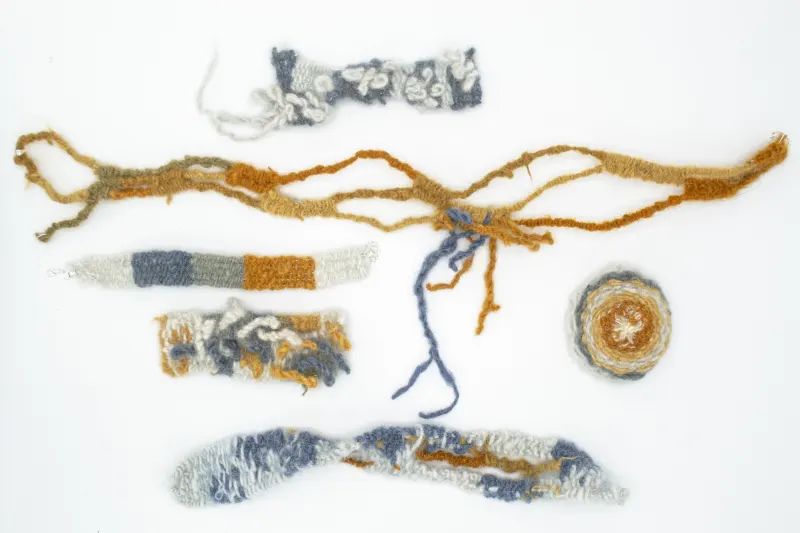University of the Arts London awarded three AHRC/Future Observatory Design Exchange Partnerships

- Written byNicole Horgan
- Published date 01 April 2024

Three University of the Arts London (UAL) projects have been awarded a Design Exchange Partnership (DEP) as part of the ambitious, multi-million-pound Future Observatory: Design the Green Transition fund led by London’s Design Museum and the Arts and Humanities Research Council’s (AHRC). It is the largest publicly funded design research and innovation (R&I) programme in the UK.
Up to 75 DEPs will be awarded £3m over three years, bringing researchers into collaboration with non-academic partners to address the climate crisis. Design-led approaches have emerged as pivotal in driving such innovation, and the DEP network aims to leverage design thought leadership for the green transition. Early career design researchers will help a diverse range of businesses, public sector, and third sector organisations across the UK to tackle specific climate challenges, embed state of the art design skills and methods and equip all partners with valuable collaborative R&I experience.
At UAL, creating a just, sustainable future is at the centre of our mission. Our research institutes and centres - from the Centre for Sustainable Fashion to the Fashion Textiles and Technology Institute - have developed pioneering research in sustainability and climate action for many years, providing leadership across a wide range of issues from circularity to sustainable design. Using evidence from our research and knowledge exchange activities enables us to create change in industry and our society.
Find out more about the three DEP projects led by academics from across UAL, including Chelsea College of Arts and London College of Fashion, below.
Future Fashion Landscapes: Fostering biodiversity through collaborations between farmers, designers and processors of native and rare breed wool
Academic Supervisor: Sandy Black
Research Associate: Mila Burcikova
Non-Academic Partner: Southeast and Southwest England Fibreshed
This design-led R&D partnership is a collaboration with South East England and South West England Fibreshed, that supports Fibreshed’s mission to revalue UK wool and create short, transparent bio-regional fibre and fashion supply networks with potential for replication. Wool is still produced in the UK in abundance, but it is chronically undervalued, underutilised, and often destroyed through lack of markets. The project will address one of the key barriers for advancement of bio-regional fibre and textiles ecosystems and economies - the lack of links, common language and mutual understanding of requirements and production cycles between farmers, designers, and processors.
Find out more about the project here.
HairCycle: a pilot study to explore and test regenerative, local, bio-based and circular models for human hair waste
Academic Supervisor: Rosie Hornbuckle
Research Associate: Sanne Visser
Non-Academic Partner: London Borough of Newham
HairCycle aims to revolutionise perspectives on the value of waste, focusing on the locally abundant resource of human hair. The research transcends conventional approaches to ‘recycling and waste’ by focusing on behaviour change at the local level, whilst captivating peoples’ curiosity and imagination using participatory methods and creative material exploration.
Working with the London Borough of Newham, this project will develop and test new systemic methods and models for the collection, recycling and regeneration of human hair waste (HHW) from local hairdressers/barbershops to support the green transition in a local context. The project considers the local needs of hairdressing practices alongside the Council’s Reduction and Recycling Plan, to combat waste whilst generating multifaceted value for people and planet to thrive within their local, circular bioeconomy.
You can find out more about the project here.
New Composites: diversifying material sources in a circular textiles economy
Academic Supervisor: Kate Goldsworthy
Research Associate: Laetitia Forst
Non-Academic Partner: Circular Textiles Foundation, Coléchi, Salt and ReWeave
This project addresses the lack of information on composition, production processes and recyclability criteria for alternative fibres and yarns and will provide recommendations for their use directly based on recycler parameters working in collaboration with the Circular Textiles Foundation. It acknowledges that often alternative fibres need to be blended with other materials to compensate for cost of performance challenges.
The recommendations for circular composites with emerging sustainable fibres will be tested in the practice of a textile design partners Salt., ReWeave, and Colechi, producing a series of textile demonstrators that will show the potential for design with recycled and biobased materials in circular systems.
You can find out more about the project here.